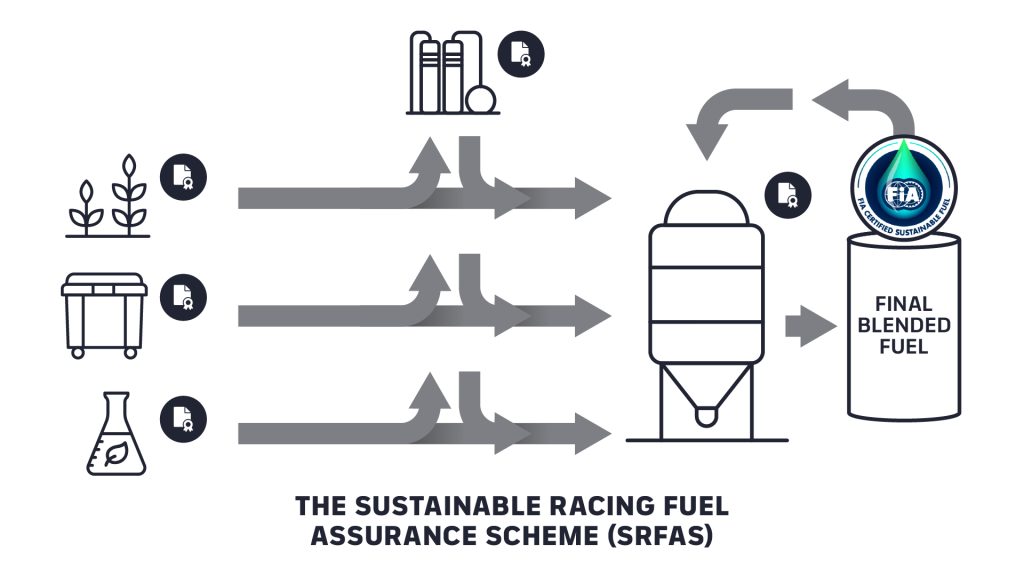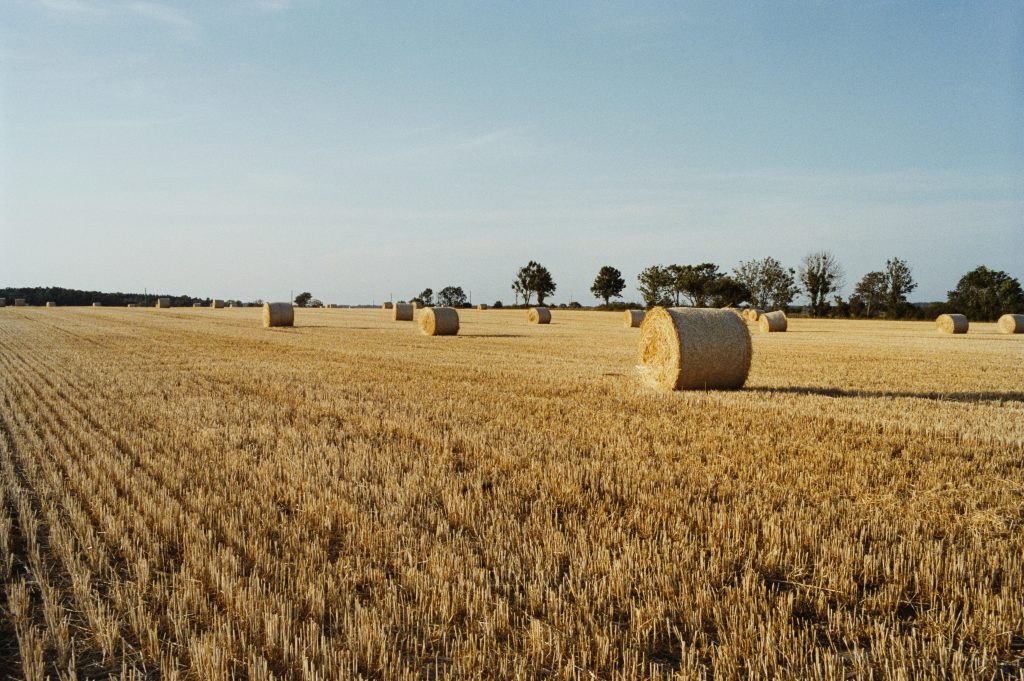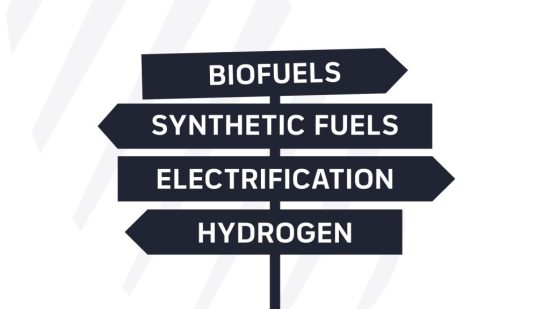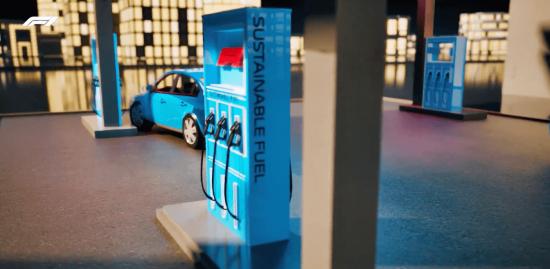When utilising sustainable fuels, it’s important to know how to identify legitimate and credible products.
The alternative fuel sector is relatively new, full of innovation and ground-breaking technology. Unfortunately, with that evolution comes a lot of misunderstanding and misinformation. However, with a little direction, you’ll be perfectly placed to make the most of this technology and its benefits.
In this article, we’ll outline the current sustainable fuel certification schemes and standards you should look out for when exploring this solution.
Key Indicators of true sustainability in fuel
Certified sustainable fuels are evaluated based on the following key indicators:
- Greenhouse Gas (GHG) Savings: The fuel should demonstrate significant reductions in lifecycle GHG emissions compared to fossil fuels.
- Sustainable feedstock sourcing: There should be proof that the raw materials are derived from sustainable sources, such as waste, residues, or renewable resources, without contributing to deforestation or biodiversity loss.
- Traceability: The fuel producer should maintain a transparent and verifiable chain of custody (the fuel’s journey) from feedstock production to the end product.
- Compliance with regulations: The fuel should meet any international, national, and regional sustainability criteria. For example, the EU RED Directive III is the legal framework for the development of clean energy across all sectors of the EU economy.
- Protection of ecosystems: The fuel should use feedstocks that avoid harmful environmental impacts, such as land-use change, and safeguard natural habitats and biodiversity.
- Social responsibility: The producers of the fuel should adhere to ethical labour practices, respect human rights, and benefit local communities involved in production.
These indicators are validated by independent audits under certification systems, like ISCC, which we’ll touch on below.
How to check if fuel is sustainable
Verifying sustainable fuel claims linked to the above indicators isn’t always an easy task. This is because the production process may involve multiple ingredients, suppliers and stages to create a blend that meets your needs. So, the chain of custody can be complicated and harder to track. For example, a sustainable feedstock may deliver a certain greenhouse gas (GHG) saving. However, if you then transport this fuel to another facility to process it, you may lose some of those savings in transport or through further fuel treatments.
To add to this complexity, different sectors of transport and fuel production have their own governing bodies and standards that reflect their specific requirements. For example, the criteria for racing fuels used in motorsport differ from those outlined for the biodiesels used in heavy goods vehicles.
As a result of these two factors, there are two different paths you may have to take when seeking verification for the claims made by sustainable fuel suppliers.
- Checking if your fuel has received an industry mark of approval (where appropriate).
- Requesting the relevant certification for feedstocks and production independently.
We’ll explore these options in more detail below.

Sustainable certification schemes and standards
Here, we’ll signpost some of the various sustainable fuel certifications and schemes to look out for at the time this article goes to print, depending on the fuel you require.
Race fuels
FIA Sustainable Fuel Certification Programme (SRFAS)
The FIA recently announced a new certification system for Formula 1 racing fuels, called the Sustainable Race Fuel Assurance Scheme (SRFAS). By auditing the feedstocks and production process, the approval ensures the certification covers the entire fuel. Once this is fully operational, it may also be applied to wider championships in the motorsport industry, such as Appendix J.

Fleet biodiesel
The Renewable Fuels Assurance Scheme (RFAS)
The Renewable Fuels Assurance Scheme is an initiative designed and managed by Zemo Partnership. It works alongside the Government’s Renewable Transport Fuel Obligation (RTFO) and aims to verify claims made by companies supplying renewable fuels to heavy-duty vehicle and equipment operators regarding their product’s GHG emission savings and provenance of raw material feedstocks.
Due to more direct chains of custody from manufacturers to consumers in this market, these unblended fuels are easier to certify. Therefore, the certification covers the entire fuel.

Blended fuels (available to businesses and the public for passenger cars)
Blended fuels have a more complex chain of custody, so there is currently no all-encompassing approval system for a final fuel. However, the feedstocks and production processes can be audited independently. We’ve outlined some examples of such schemes below.
The International Sustainability and Carbon Certification (ISCC)
The ISCC is a global certification system that ensures sustainable, traceable, and climate-friendly practices in supply chains, particularly for biomass, bioenergy, and circular economy products. It aims to promote sustainability, reduce greenhouse gas emissions, and protect ecosystems.
It operates two different certification schemes for two different markets:
ISCC EU
The ISCC EU certifies compliance with the legal sustainability requirements of the Renewable Energy Directive (RED) II and the Fuel Quality Directive (FQD). It’s intended for biofuels and energy in the EU.
ISCC PLUS
ISCC PLUS certification can be customised to meet the needs of different markets or specific applications. Typically, it certifies compliance with sustainability standards for markets and sectors not regulated by the RED II, such as food, feed, energy, and industrial applications. It covers a wide range of materials, including:
- Agricultural and forestry raw materials
- Waste and residues
- Non-bio renewables
- Recycled carbon materials and fuels
- Plastic products and composites linked to recycled or bio-based materials

How to spot greenwashing and misleading claims
Here, we list some of the ways you can spot greenwashing and misleading claims.
Look for certification
Avoid vague claims like ‘eco-friendly or ‘green’ without reference to a recognised certification standard (e.g., ISCC). Instead, verify if the fuel is certified by credible organisations with clear sustainability criteria.
Scrutinise greenhouse gas reduction claims
Avoid claims of significant GHG reductions without lifecycle analysis or independent verification. Instead, look for detailed, verifiable data on GHG savings supported by audits or studies.
Assess feedstock transparency
Avoid ambiguity about the source of feedstocks (e.g., “organic materials” without specifying type or origin). Instead, confirm the use of sustainable feedstocks like waste, residues, or responsibly grown biomass, avoiding deforestation or food crop competition.
Watch for overstated benefits
Avoid claims that sound too good to be true, such as “zero emissions” or “completely sustainable”. Sustainability is complex—credible companies acknowledge challenges and limitations.
Check for traceability
Avoid companies that have no proof of chain-of-custody or traceability for the product. Demand evidence of tracking from feedstock origin to the final fuel, ensuring integrity.
Investigate regulatory compliance
Look out for claims that bypass regional or global regulations (e.g., EU RED II). Instead, verify alignment with relevant legal and sustainability frameworks.
Examine social and ethical impacts
Ensure adherence to fair labour practices and community benefits.
As this article shows, the verification process for sustainability claims is still evolving, and it will continue to do so as new materials and methods come into the market. However, as quickly as these innovations develop, so too are the structures used to interrogate them. With organisations like ours championing transparency in the market, we hope to enable consumers from all sectors to progress their sustainability journeys with confidence and credibility.





